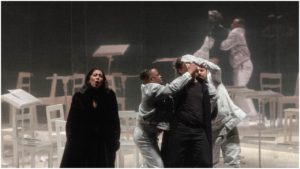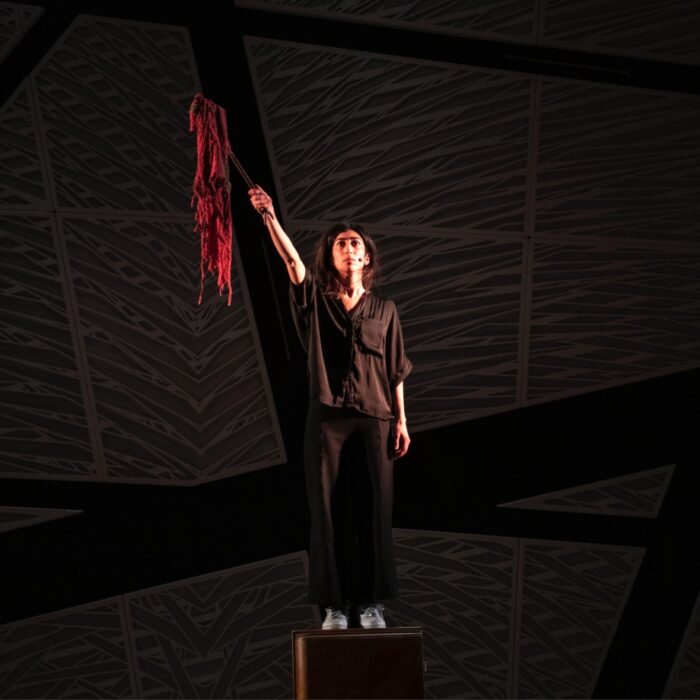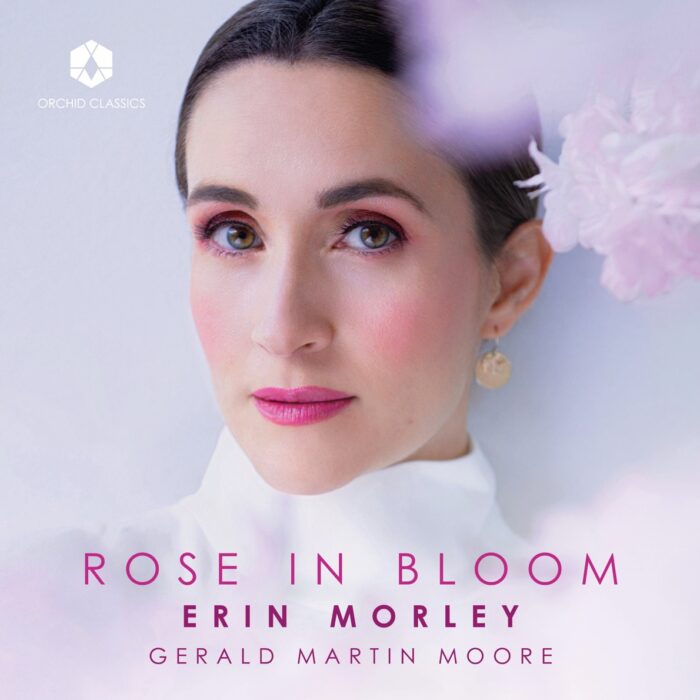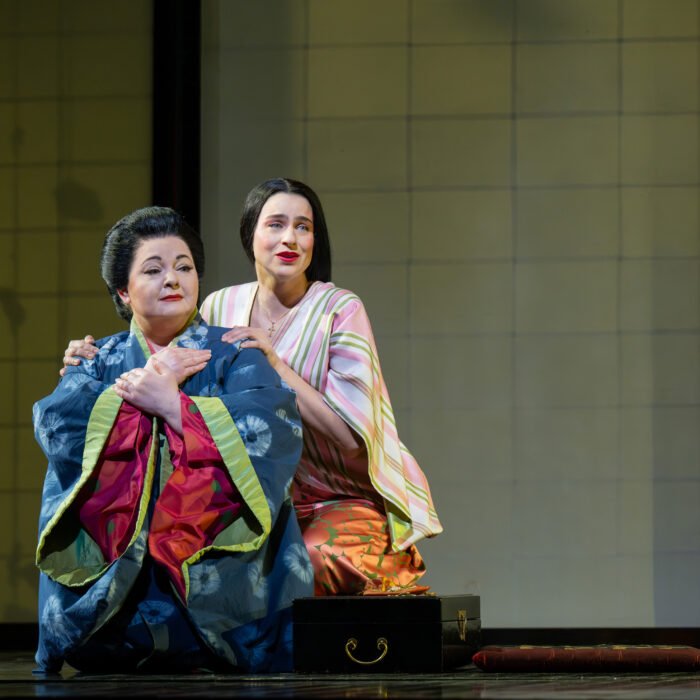
Centro Cultural de Bélem 2022 Review: Orphée
Carla Caramujo & Susana Gaspar Shine in Brilliant Production of Glass Work
By Ching ChangPhilip Glass celebrated his 85th birthday last week on January 31, and Lisbon’s Centro Cultural de Bélem joined a handful of worldwide performances honoring the great American maverick composer with a dazzling world-class production of his early opera “Orphée,” composed in 1991 and part of Glass’ groundbreaking trilogy of operas based on films by French poet and filmmaker Jean Cocteau.
Directed by Felipe Hirsch and led by conductor Pedro Neves, these perfomances assembled a superb all-Portuguese cast, excellently supported by Lisbon’s Orquestra Metropolitana.
Premiered in 1993, “Orphée” was one of the titles within the strikingly brilliant and inventive set of Glass’ operas which included the adaptation of Cocteau’s “Les Enfants terribles” and the through-composed treatment of “La Belle et la bête.” Deemed experimental at the time, the triptych helped introduce sonic minimalism to the masses, expanding the possibilities of trance-inducing, minimalist music beyond the abstract pulsating glow first heard by millions in the composer’s wildly successful 1980’s film collaboration with Godffrey Reggio, “Koyaanisqatsi.”
Ingeniously Realized
The opera’s source is Cocteau’s classic film “Orphée” from 1950, which adapts the myth of Orpheus in the underworld to the then contemporary Paris of the post-war era, and the cinematography captures unselfconsciously the ambient cacophony of Paris café culture, rendered with visually rich verisimilitude, and alternates this environment with the enigmatic underworld, accessed supernaturally beyond mirrors. This conception by the Brazilian director Felipe Hirsch’s was ingeniously realized, fully capturing the psychology and conceptual elements represented in Cocteau’s visual narrative.
The singular set consisted of large wall-sized mirrored backdrop panels, placed at a shallow angle, with dozens of white chairs on stage the whole time. Reflected against the background mirrors, the reflections of chairs and people created a multiplying, kaleidoscopic effect, permitting the action to be viewed by the audience from multiple perspectives while perfectly replicating the busy clattering of cafe society and the chaos of bar brawls and street fights of the source film.
The large mirror panels also effectively concealed mirrored doors, that aided by strategically deployed lighting and moody scrims, allowed for efficient and nearly magical appearances and disappearances of various characters entering stage or transiting to the supernatural underworld. In preserving the prominence of the mirrors as a key element, the stylish architectural sets remained remarkably faithful to the psychology of Cocteau’s source, and one hardly missed the detailed visual texture of Cocteau’s film.
Portuguese Stars
A brilliant all-Portuguese ensemble cast of terrific singing actors were assembled for this outing, veterans who rose with aplomb to the demanding challenges of this taxing score.
Baritone André Bailero created a vivid theatrical psychology of this challenging characterization of Orpheus, offering a robust, resonant and authoritative tone that provided a sharp counterpoint to the often perplexed and reticent character of Eurydice.
As the Eurydice, soprano Susana Gaspar displayed equal measures of both lyricism and dramatic instincts, exemplifying the essential qualities that define a great singing actress.
Also impressive was soprano Carla Caramujo, in her delivery the enigmatic role of the Princess which catalyzes much of the plot’s action. Caramujo’s technical fluency in rendering this notably taxing assignment was a singular achievement, which shows Glass’ using a high lyric coloratura voice atypically to create a layered and textured dramatic character rather than for merely adding decorative vocalism to the mix.
The young Portuguese tenor Luís Gomes showed superlative artistry in the multitasking role of the judicious Heuterbise, creating a gripping embodiment of the character that made one almost forget that it was a performance.
The supporting cast of Marcos Alves dos Santos as Cageste; Cátia Moreso as Aglaonice; Nuno Dias as the judge; Luis Rodrigues as the poet; and João Pedro Cabral as the reporter collectively epitomized a superb ensemble cast, making the essential contributions that elevated this striking production to a success.
Maestro Pedro Nunes led Lisbon’s Orquestra Metropolitana in a dynamic and beautifully fluid reading of score, showing Nunes energetic and easy fluency with the style of Glass’ musical language from the work’s period. Individual instruments in the ensemble helped sketch the sharply focused organic narrative, an essential component of the storytelling that dissipates any sort of hint of the label “experimental” that were often attached to Philip Glass’ works in the 90’s: as an opera this Orphée now feels like a classic, just as Cocteau’s film.
This co-production by the Centro Cultural de Bélem in Lisbon and the Theatro Municipal do Rio de Janeiro in Brazil was first seen in 2018 in Rio de Janeiro, and had been scheduled to be recreated in Portugal last year, but it was inevitably postponed to this year due to the pandemic, and one can only hope it gets revivals in the future.



